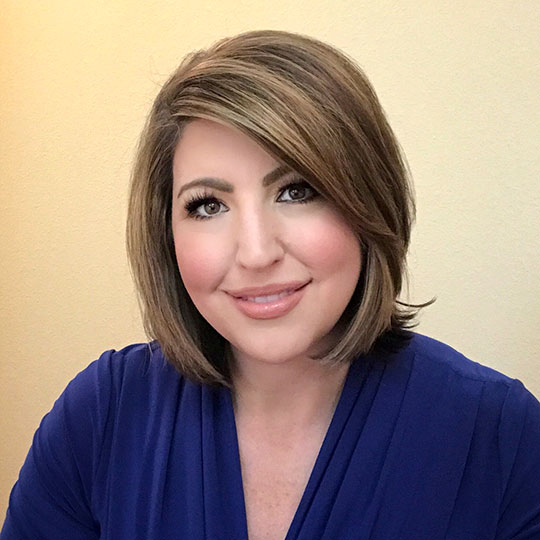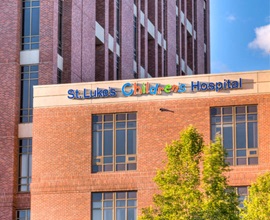St. Luke’s Children’s Hospital Provides Newborns in Need with Safe Places to Sleep

St. Luke’s Children’s Hospital is working to protect more newborn babies in Idaho and Eastern Oregon, and keep them safe while they sleep. It’s now providing portable cribs to new families in need in an effort to prevent sleep-related deaths.
Every year in the U.S., more than 3,500 babies die from sleep-related causes, according to the CDC. While Sudden Infant Death Syndrome (SIDS) is the cause of death for some of those babies, many continue to die accidentally from suffocation or strangulation due to things like loose bedding or clothing, soft pillows, being placed on their side or stomach, and bed sharing.
CDC researchers recently found that unsafe sleep practices with babies remain common, despite almost three decades of education:
- One in five mothers reported not placing their baby on their back to sleep. (22%)
- More than half of mothers reported bed sharing with their baby. (61%)
- Two in five mothers reported using soft bedding in the baby’s sleep environment. (39%)
In 2014, five infants in Idaho had accidental deaths related to their sleep environments, and 21 died unexplainably from SIDS.

To help reduce one of the most preventable deaths in babies, St. Luke's Children’s Hospital is adding to its parent education efforts. It’s been accepted into the national “Cribs for Kids” program. That means families across Idaho and Eastern Oregon who can’t afford a safe place for their babies to sleep, are now provided with a Cribs for Kids portable cribette. They also receive a backpack filled with safer sleep baby gear like a HALO SleepSack wearable blanket, fitted sheets, pacifiers, and books and brochures to educate parents on how to protect babies.
“For many new parents, the idea of setting up a nursery with a crib and all the decorations you see in the magazines and on Pinterest is a fun part of being pregnant. But for families with limited resources, they’re instead looking at using a baby swing, towels around the baby in their bed, or a car seat as a crib,” said Sherry Iverson, Director of Community Education at St. Luke’s Children’s Hospital. “Keeping kids safe is part of our mission at St. Luke’s, and being able to provide a safe sleep environment and education ensures that littles in Idaho start off their lives safe. And because this is a port-a-crib, it can continue to be a safe place even as the baby grows, or spends time at Grandma’s house.”
Eligible families are referred to the program and screened by St. Luke’s physicians, social workers, or patient care and child injury prevention coordinators. In order to receive the Cribs for Kids cribette, they must have in-person safe sleep education and a demonstration on how to properly set-up the crib. That can occur even before the family leaves the hospital with their new baby. During pediatrician appointments, St. Luke’s providers also follow-up to inquire about the child’s sleep environment and answer any related questions. That’s another opportunity to identify families in need.

“When health care providers ask the question, ‘where will your baby sleep at night,’ they, along with this program, are helping to ensure when we discover an unsafe sleep environment we can quickly offer a solution. Already, we’ve heard from parents that are so grateful and appreciative of the help,” said Iverson.
So far, St. Luke’s Children’s Hospital has been able to provide cribs to 38 local families, and will reach even more thanks to Delta Air Lines. The company stepped in to sponsor the program and donated $25,000 to Idaho’s only children’s hospital specifically for this program, and also to help provide families with additional diapers and wipes.
St. Luke’s hospitals in Boise, Meridian, Nampa, Mountain Home, Jerome, McCall, Wood River, and Magic Valley join more than 600 other hospitals around the country taking part in the Cribs for Kids program.
Safe Sleep Practices recommended by the American Academy of Pediatrics (AAP):
- Room share, but do not bed share.
- Place babies to sleep on their backs.
- Choose a firm sleep surface such as a crib or bassinet with a tight-fitting sheet. Do not place babies on a couch, arm chair or soft surface.
- Remove soft objects and loose bedding. This includes crib bumpers, blankets, pillows and toys. The crib should be bare.
- Keep newborns in parents’ room a minimum of six months. One year is optimal.
- Avoid baby’s exposure to smoke, alcohol and illicit drugs.
About The Author

Anita Kisseé was the Treasure Valley public relations manager for St. Luke’s Health System.

